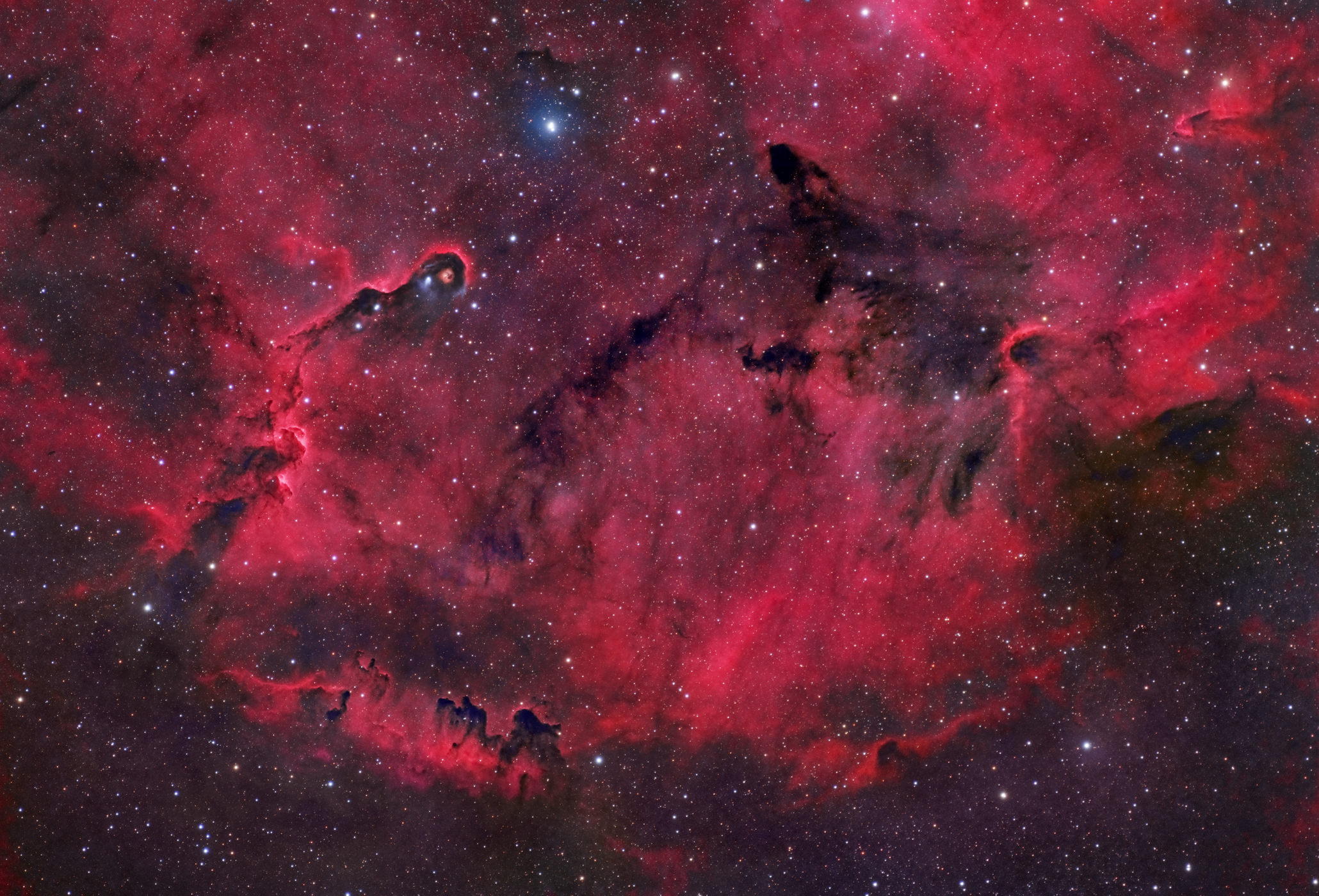A Dusty Elephant (IC1396 and Surrounding Dust)
Characteristics:
RA (J2000): 21h 36m 55s
Dec (J2000): +57 degrees 56' 55"
Position Angle: 131 degrees
Description:
This HaRGB image was taken in May 2023
and represents a section of IC1396, which is a large
emission nebula in Cepheus. The
image scale with my FSQ106 plus ASI294MM camera is 0.9
arcseconds/pixel, which is well-matched for my typical seeing
conditions. Additional details of image acquistion and processing
are
outlined below. This region has several
"cometary globules", which consist of a head
followed by a tail of dust that is being blown backwards by HD206267's
solar wind. The most conspicuous globule is 1396A, also known
as the "Elephant Trunk", shown left of
center in the above image.
Please be sure to check out
the larger sized images for greater detail, including the head of the
Elephant Trunk region.
Photographic
Details:
Dates: May 26, 27, 28, 29, and 30,
2023.
Scope: Takahashi
FSQ106 at f5 on the Takahashi NJP
Mount.
Autoguider: ASI178 autoguider with SvBony 30mm guidescope, focal length
120mm.
Camera: ZWO ASI294MM at -10C,
with
7 position ZWO filter wheel. Pixel size is 2.3 microns (Bin 1x1),
yielding an image scale with the FSQ (530mm focal length) of 0.90
"/pixel (well matched for my seeing of 3 arcseconds).
Camera gain set to 50 (e-gain
2.13 electrons/ADU), offset 25.
Read noise at this gain level was 2.18 electrons rms.
Filters: Baader
Ha, R, G, B filters; 2 inch.
Image acquisition
software: MaximDL for camera control and autoguiding; CCD
Commander for automation.
Exposures: Total
exposure 12 hours (Ha: 6 hours, 300 second subs; RGB 6 hours, 120
second subs).
Processing:
Calibration,
integration, deconvolution (BlurXTerminator), noise reduction
(NoiseXTerminator) in
Pixinsight; subsequent processing in Photoshop.
Please
note: Graphics on this website may not be reproduced without
author permission.
Back to Nebulae
Home



